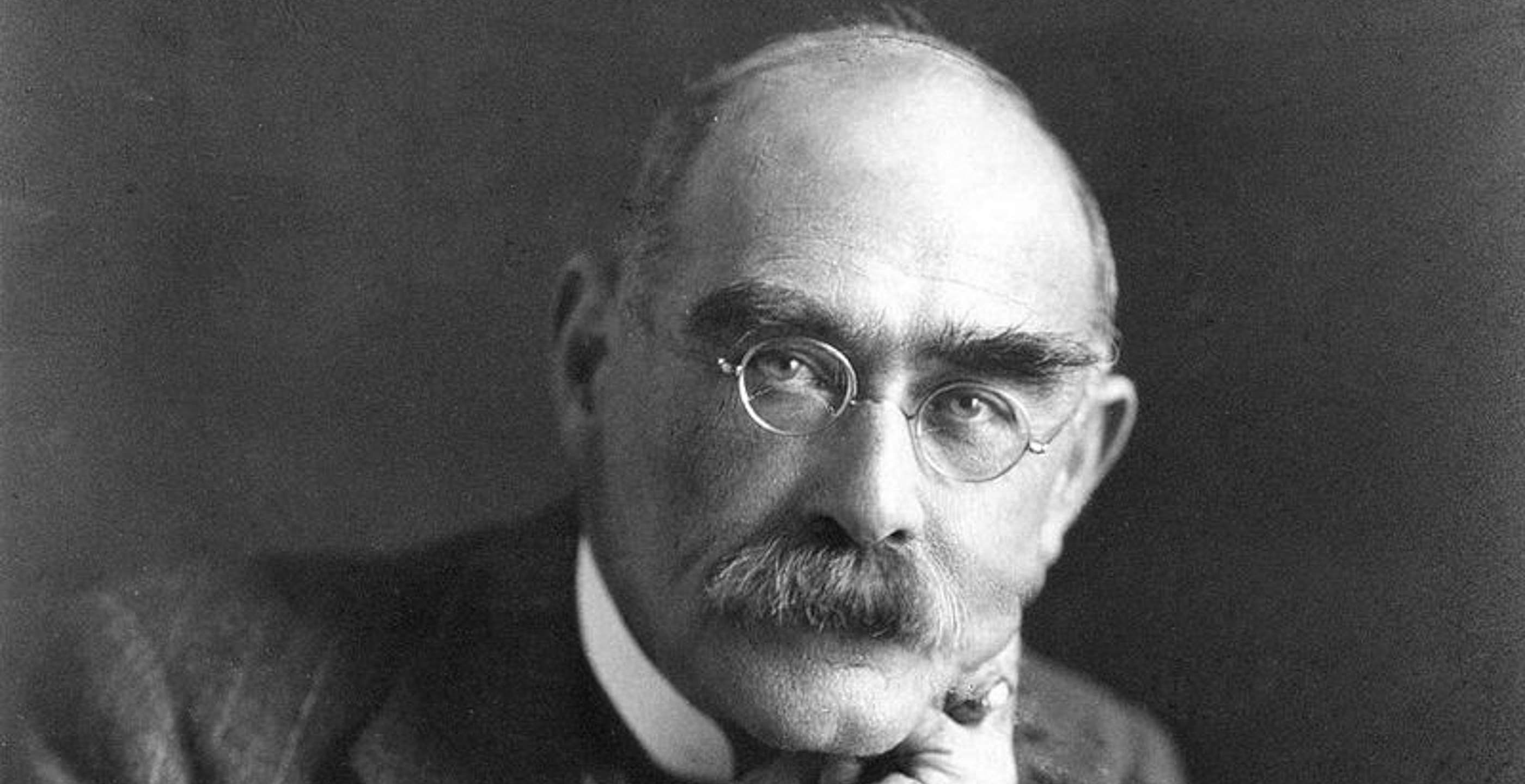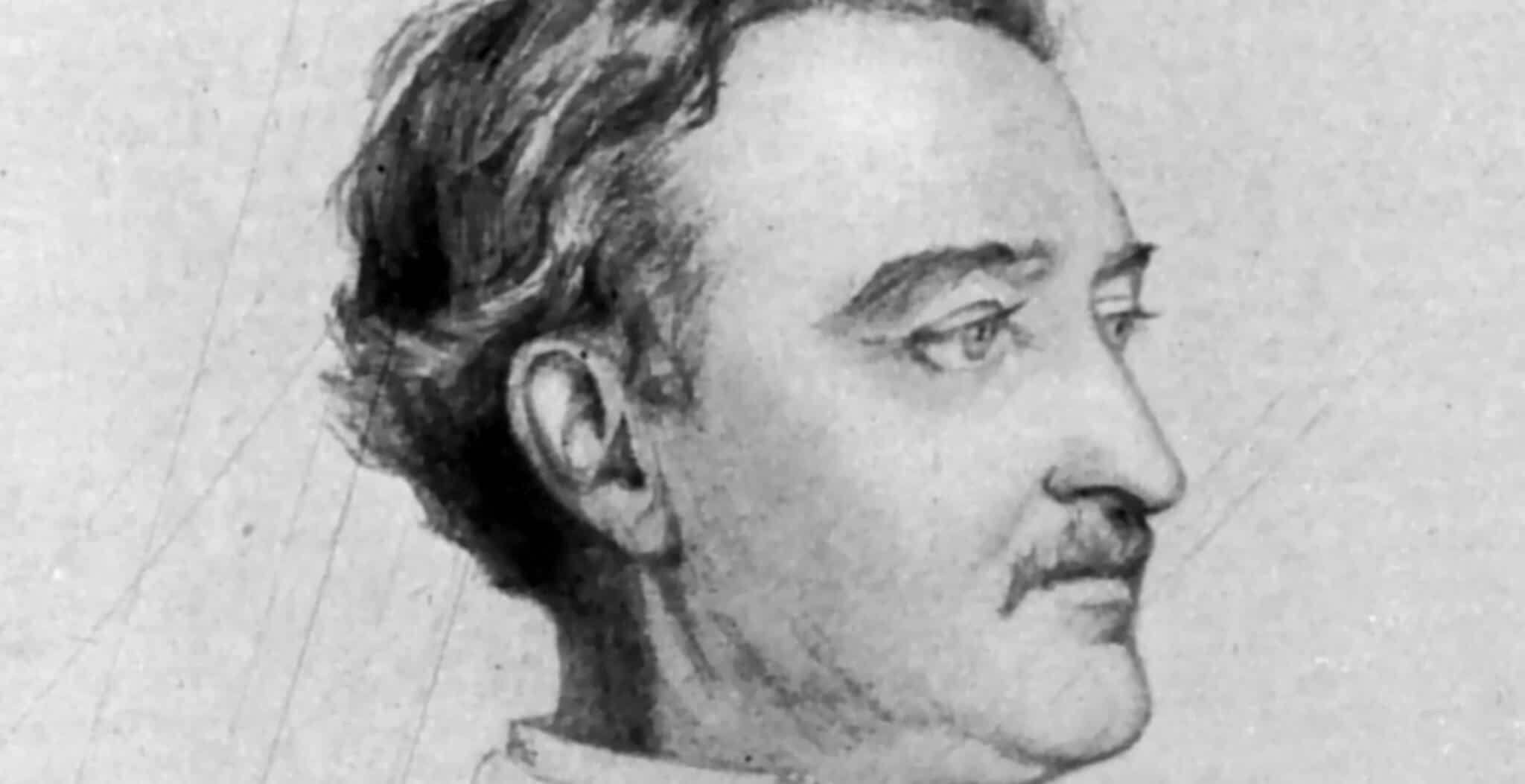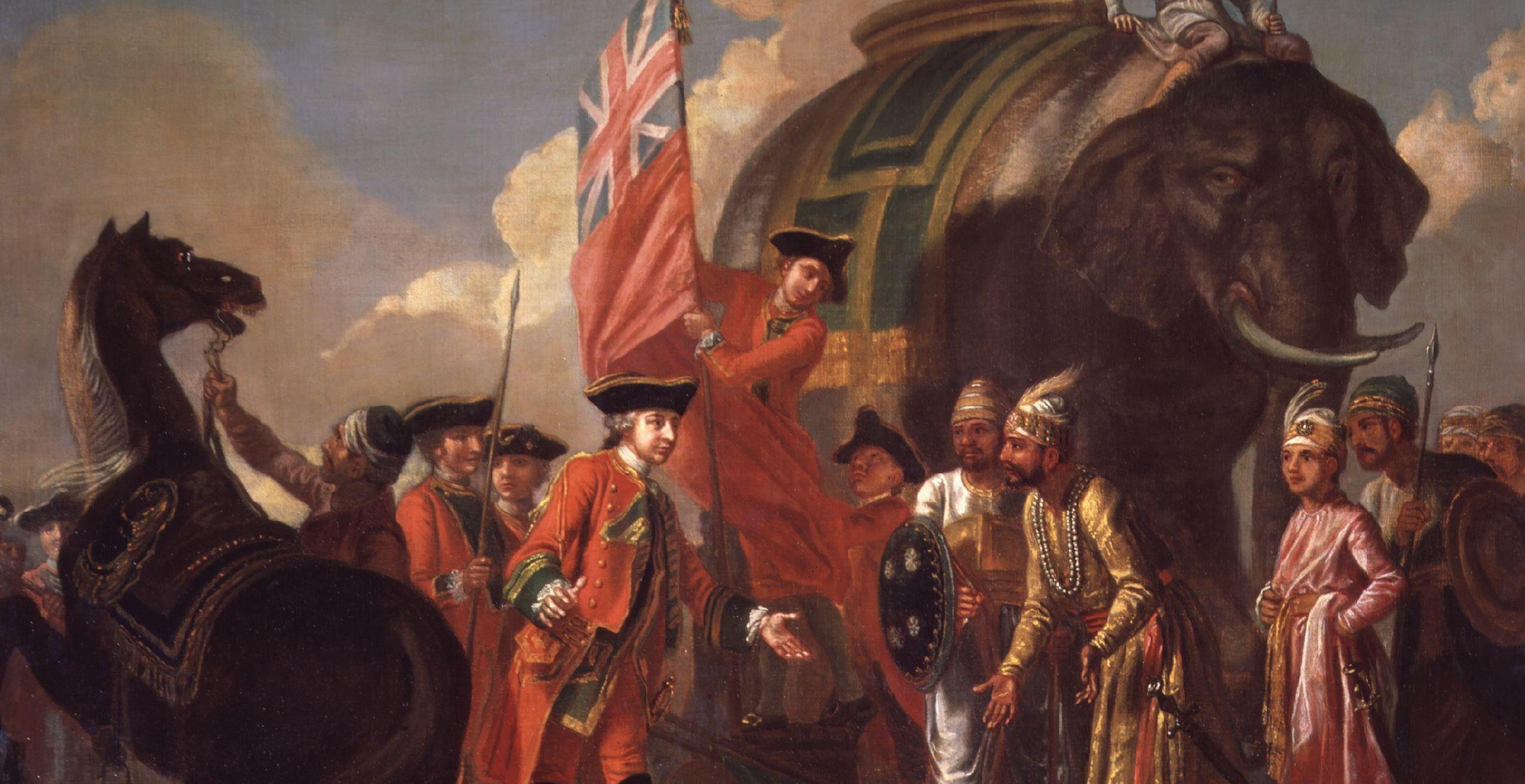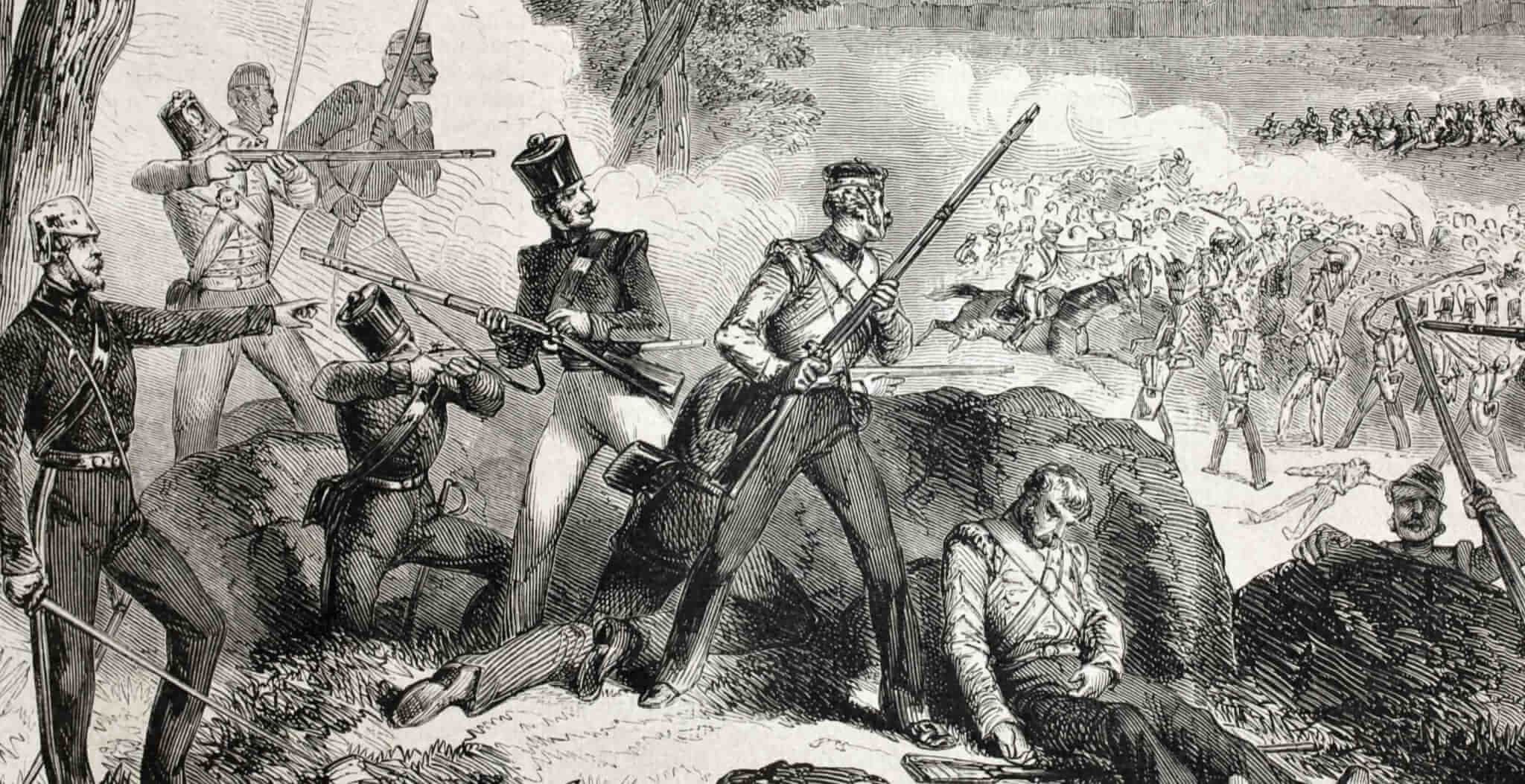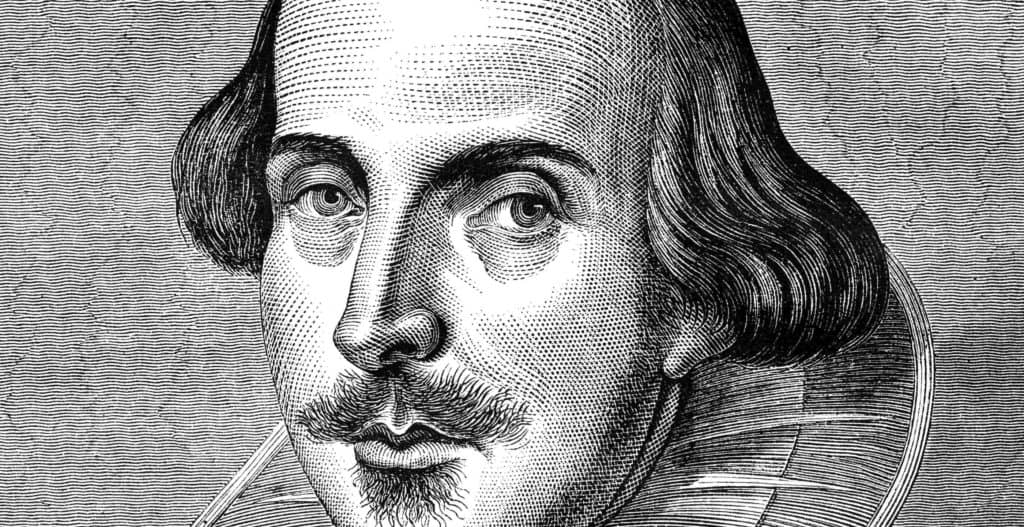On 30th December 1865, Rudyard Kipling was born. He would become a prolific poet, novelist and journalist and one of the most well-known Victorian writers of his time.
Kipling was awarded the Nobel Prize for Literature in 1907 for his great body of work which included ‘The Jungle Book’ and the poem ‘If’, an acknowledgement of his great success as one of the most popular writers of the late nineteenth and early twentieth century. Whilst today his views have garnered criticism and controversy, he remains an influential and leading literary figure both in prose and verse.
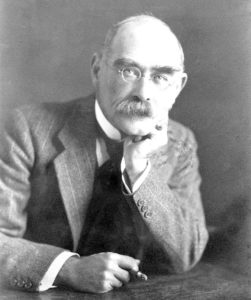
Joseph Rudyard Kipling was born in Bombay, India where his father John Lockwood Kipling was working as a principal of the Jeejeebyhoy School of Art. His background as an artist and architect motivated him to travel to India in a bid to preserve and be inspired by the art and architectural styles of India. He would end up working as a curator at the Lahore Museum, something which Rudyard chose to include in the first chapter of his novel, ‘Kim’.
Kipling’s mother was Alice Macdonald, who had important artistic connections within the Pre-Raphaelite movement back in Britain as her sister was married to the famous artist Edward Burne-Jones. His extended family also included the future Prime Minister Stanley Baldwin, whose mother was also Kipling’s aunt. The artistic and political ties would consistently remain important for Kipling throughout his life.
The young Kipling would spend his early childhood in India, until at the age of six when he and his sister Beatrice were sent to England in order to begin their schooling. For Rudyard, this experience would prove to be both tumultuous and damaging. He and his sister would stay in a foster home, Lorne Lodge in Southsea, which they would refer to as the “House of Desolation”. Together they spent around six years in the boarding house run by the widow of an old Navy captain. The horrific experience would inspire Kipling in his story ‘Baa Baa Black Sheep’ in 1888.
Later, he went on to attend the United Services College in north Devon, another bad experience for the unhappy boy. The inferior education he received at the cheap boarding school was made worse by the bullying and brutality which featured so prominently on a day-to-day basis.
The harshness of his childhood became a strong feature in his literature, which often depicted brutality and severity as its key theme. ‘Stalky and Co’ published in 1899 exemplifies these themes. This is a story based on a trio of schoolboys with the character known as Beetle loosely based on Kipling himself. The story includes a variety of austere themes, including violence and revenge combined with more macabre undertones, whilst its conclusion has the boys ending up in the armed forces in India. The stark and callous educational approach is depicted as a precursor to the boys’ impending roles in imperial positions. His childhood experiences were clearly explored and evoked in his literature; the bleakness and cruelty is evident on the page.
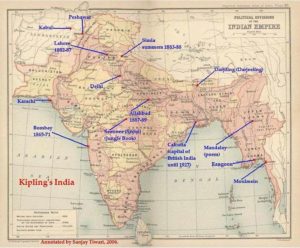 Kipling’s India
Kipling’s India
In 1882 Kipling would return to India once more in order to work as a journalist for seven years. During this time Kipling was able to immerse himself completely in the experience, belonging to the Anglo-Indian society which held prominence, whilst remaining enthralled by the spectacles which India had to offer. His time in India would prove to be a literary fulfilling experience, inspiring him to produce a variety of prose, verse and short-story collections.
Upon his return to England in 1889, Kipling would be very well-received as his reputation as a great poet and short-story writer had spread. In the next three years, the publication of his ‘Barrack-Room Ballards’ would allow him to rise to a most esteemed position as a revered poet, following in the footsteps of the poet laureate Alfred Lord Tennyson who died in 1892.
Many of the poems were written from the perspective of English soldiers and won him great notoriety. The poem ‘Gunga Din’, composed in 1890 is well-remembered, so much so that it is often quoted when referring to self-praise. The poem depicts the soldiers’ regret at treating ‘Din’ so poorly and they admit he is the better man. The verse contrasts with his later work, as he depicts the Indian as a heroic character whilst the British soldiers around him treat him with a lack of respect.
As his reputation as a great poet grew, in 1892 he married Caroline Balestier, who was related to the American publisher and writer with whom he had previously worked. The young married couple decided to settle in America, moving to Vermont where his two daughters were born. It was whilst he was in America that one of his most famous creations, ‘The Jungle Book’ was published in 1894. Nevertheless, Kipling never truly settled in his home across the Atlantic and by 1896 he had made the decision to move back to England after a falling out with his wife’s family.
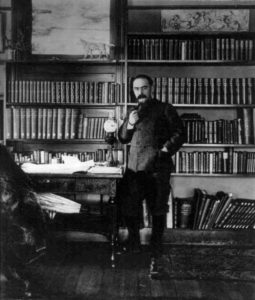 Kipling in his study in Vermont, 1895
Kipling in his study in Vermont, 1895
Back in the literary world, Kipling embraced poetry and short-stories as well as novels, which earned him as many plaudits as his previous work. In the 1890’s, he was producing some of his best-known work including ‘Captain Courageous’, ‘The Light that Failed’ and of course, ‘The Jungle Book’.
One of his best loved novels, ‘Kim’ was published in 1901 and told a story set against the backdrop of The Great Game (the unfolding political confrontation fought between Russia and Britain in Asia). The book itself popularised the term “Great Game” and explored themes of power as well as culture which is so vividly depicted in the novel.
By 1902 Kipling had settled in Sussex where he would stay until his death. The influence of his surroundings would continue to feature in his writing, as shown in his later work such as ‘Rewards and Fairies’ which dramatically tells stories of English history in a historical, fantasy style. The book contains a number of short stories set in different eras but with a continuous narrative throughout.
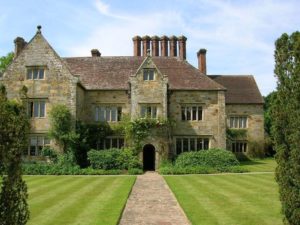 Bateman’s in Burwash, East Sussex, Kipling’s home and now a museum dedicated to the author
Bateman’s in Burwash, East Sussex, Kipling’s home and now a museum dedicated to the author
Within this collection is one of his most famous and revered creations, the poem, ‘If’. The poem was said to be inspired by Leander Starr Jameson, the man who unsuccessfully led the doomed Jameson Raid against the Transvaal in South Africa. ‘If’ is considered a classic in English literature and remains a prime example of Victorian stoicism; a classic evocation of British culture, composed in a didactic style.
His work, whilst varied in genre, form and style, whether poetry, short-story or novel proved to have a massive impact on its audience and would later win him the Nobel Prize for Literature in 1907, notably the first Englishman to receive the award.
Whilst his work would continue to garner great attention and appreciation, as time went on, especially after the First World War and in an ever changing global context, his popularity dwindled. As a man of his time he represented the pinnacle of British imperialism whereby he felt strongly that he was bound by a civilising mission, in that every Englishman had to civilise what he believed to be an uncivilised world, most strongly advocated and depicted in his poem, ‘The White Man’s burden’.
His association with South African statesman Cecil Rhodes appeared to strengthen his convictions but he soon found himself surrounded by liberal attitudes completely juxtaposed to his own. In a world that was changing, he quickly fell out of favour and spent the rest of his life in isolation.
On 18th January 1936 he passed away and was buried in Westminster Abbey. His story-telling made him one of the most popular writers in the time of the British Empire. His ability to compose poetry and novels with equal style and appeal to children and adults alike demonstrated his great literary ability.
Jessica Brain is a freelance writer specialising in history. Based in Kent and a lover of all things historical.
